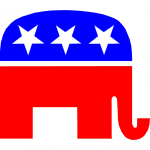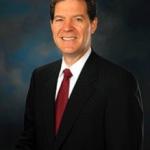In advance of the party conventions this month, Hillary Clinton and Donald Trump are presently considering one of the first and most important decisions they will make as their parties’ presumptive nominees.
The period between sowing up the nomination and being formally nominated at the convention is usually filled with staff changes, fundraising, and consolidating party support and strategy.
But presumptive nominees must also make another consequential decision: Who to select as their vice-presidential running mate. Political science research shows that vice-presidential selections are not very consequential in elections. Here are some factors that people think affect nominees’ decision making.

Common Theories of Vice Presidential Selection
Geography. This is an oldie but a goodie. There was a time when this mattered more, as when Sen. John F. Kennedy of Massachusetts ran with Sen. Lyndon B. Johnson of Texas. There were significant divides between urban, Northern, Catholic Democrats and the less urban, Protestant “solid South.” Geography and ideology were more closely tied together than they are today, where almost all prospective Democratic VP candidates are liberal and almost all prospective Republican VP candidates are conservative, no matter where they are from.
Also, the issue of where a national politician is “from” is very different today. Mitt Romney was born in Michigan, lived in Utah when he saved the 2002 Olympics, was a past governor of Massachusetts, had a vacation home in New Hampshire, and an oceanfront home in California. Dick Cheney was “from” Wyoming, which he represented in Congress in the 1980s, but he lived and worked Washington before and after his Congressional service and lived in Texas during most of the Clinton years. Is Hillary Clinton “from” Illinois, where she was born? Arkansas, where she was a lawyer? New York, which she represented in the U.S. Senate? Or Washington, where she lived from 1993-2001 and 2009-2013? Or maybe 2009 to the present? I am a political junkie and even I don’t know where Hillary Clinton lives. The point is: Where a candidate is “from” is fluid, debatable, and arguably almost meaningless.
Even so, presidential nominees tend to select running mates from other regions. Ford/Dole, Clinton/Gore, and McCain/Palin are the only examples I can think of where both ticket mates were from the same region. But I would argue that geographical balance is a tertiary consideration at best.
Swing States. This is probably the dumbest item we talk about, because there is absolutely no evidence that a VP running mate helps the ticket carry his/her “home” state and certainly no one believes that picking a nominee from a swing state helped a ticket win the election. But we speculate endlessly about this, as when people wanted Sen. John Kerry of Massachusetts to select Sen. Bob Graham of Florida in 2004. In the 2000s, there was a built in advantage, supposedly, for Senators and governors living in Ohio, Pennsylvania, and Florida, key swing states in 2000, 2004, and 2008 with large numbers of electoral votes. No running mates were chosen from those states. But the definition of “swing state” shifts, and today many people consider Colorado, Virginia, and a few other states to be vitally important battlegrounds.
Balancing Out Experience. Nominees typically choose running mates that have some different kind of government experience than they have. Members of Congress don’t often pick governors, but candidates with executive experience in government often pick Members of Congress.
Balancing Out Expertise. The presidency is an extremely demanding job that trips up even the smartest wonks and most capable leaders. It is not possible for someone to amass the political skill necessary to prevail in an election for the country’s only nationally-elected office and have a masterful knowledge of the workings of government and the private sector and be a serious expert in every domain of U.S policy. The people who become major party nominees for president are almost always very smart and capable people. But they are not always geniuses. They lack key experience and knowledge that presidents must have. Privately and practically, they solve this problem by selecting good advisors. But from a media and political standpoint, they can help themselves considerably by choosing a running mate with expertise and experience in some area where they lack it.
This is most often the case in foreign policy. The president has much more latitude in foreign affairs, where she or he is considerably less restrained by Congress or by domestic politics. Foreign trade, national security, international diplomacy, war and peace — no one can be an expert with significant experience in all these areas.
The challenge, of course, is choosing a running mate that complements and supplements your experience without pointing out your glaring weakness. In 2000, George W. Bush chose a former Defense Secretary. Even as a successful governor of a large state, Bush had no meaningful foreign policy experience. (Though, depending on your perspective, his closeness to foreign-policy experts may have mitigated against this.) Likewise, Barack Obama was obviously inexperienced in foreign affairs, whereas Sen. Joe Biden had been Chairman of the Senate Foreign Relations Committee. The difficulty for Bush in 2000 and Obama in 2008 was holding up their running mates’ experience without bringing undue attention to their inexperience.
Someone Like Me. A very different strategy than picking someone with very different experience or expertise is to pick someone very much like yourself, as Bill Clinton did in 1992. Clinton had no experience in foreign affairs or in federal government service. He was a younger, moderate “New Democrat” from the South. He might have chosen a stalwart New England liberal to “balance out the ticket.” Instead, he chose another young Southerner, Senator Al Gore of Tennessee. Thus the ticket had to concede its lack of experience in foreign policy. But the political environment was such that domestic economic concerns were paramount. Furthermore, the old Democratic coalition had begun to crumble, as white Southerners shifted to the GOP. Clinton believed there was no path to the presidency for Northern liberal Democrats by the 1990s. He chose Gore to double down on the argument he was making for himself.
Primary Rival. One theory is that nominees can unite the party by selecting a competitor s/he vanquished in the nominating contest. This is a newer theory, but it may to have figured into John Kerry’s thinking in 2004. With such a large GOP field in 2016, it seems reasonable to suppose that many of the candidates other than Donald Trump would be seriously considering one of their dispatched rivals.
Ready to Be President. If you ask any presidential nominee what she or he is looking for in a vice president, you will always get the exact same answer: “Someone who is ready to be President.” But, as with Bush in 2000 and Obama in 2008, candidates run a risk drawing attention to their inexperience by selecting a running mate arguably much more qualified to be President than they are. But aside from any experience differential, nominees sometimes select running mates who are plainly unqualified for the presidency. John McCain’s selection of Sarah Palin in 2008 stands out as a shining example.
Nine vice-presidents have acceded to the presidency, most recently Gerald Ford in 1974. Some have arguably been successful (Roosevelt, Truman, L. Johnson). Others have been unsuccessful (Fillmore, A. Johnson, perhaps Ford). Since then, Vice Presidents Walter Mondale, George Bush, and Al Gore have sought the presidency.
Of recent vice-presidential nominees, it seems reasonable to argue that some were very well qualified to be president (Jack Kemp, Joe Biden, maybe Joe Lieberman), while others probably were not (Dan Quayle, Sarah Palin, perhaps others).
Good Campaigner/Attack Dog. To the extent that this is a real consideration at all, it is probably a newer one. People who are bad campaigners or who have low levels charisma and pluck tend not to win major-party nominations for President. But it does happen. The Republican Party tended, in recent decades, to nominate a party elder whose turn had come around. Reagan was a party elder who had challenged President Ford for the nomination in 1976. George Bush was a sitting vice president. Bob Dole was a party elder who had run for vice president in 1976 and had close ties to several previous Republican administrations. John McCain lost the nominating contest in 2000, but was nominated in 2008. Mitt Romney lost in 2008 but was nominated in 2012.
Some of these people were not considered charismatic leaders or effective campaigners, particularly G.H.W. Bush and Dole. Dan Quayle was supposed to be a fresh, winsome, young face to contrast with the genteel Vice President Bush. But Quayle was no more effective a campaigner than Bush, and made several memorable gaffes. On the Democratic side, Al Gore was not considered to be a very exciting person or vivacious campaigner, especially compared to President Bill Clinton. But the addition of Joe Lieberman did little to energize the base and electrify the ticket. Conversely, John Kerry was considered low-energy in 2004, but John Edwards was known as an energetic campaigner.
McCain’s selection of Palin seemed erratic and problematic from many angles. Theoretically, she may have helped with conservative evangelicals, but few of them were going to vote for Obama anyway. She did manage to get a lot of attention during the campaign. Romney’s choice of Rep. Paul Ryan bolstered his conservative credentials, but did not get him a vicious attack dog.
This cycle, there is some sense on the Republican side that the attack-dog role is important. Had Jeb Bush or Marco Rubio been the nominee, they might have been temperamentally suited to try to appear “above the fray” and let a VP running mate attack Secretary Clinton more vigorously. And with Trump’s unpredictable and unorthodox style, the reality TV star may be well-served by an effective campaigner and attack dog like former House Speaker Newt Gingrich.
Unserious (?) Theories of Vice Presidential Selection
Bait-and-Switch. There is some doubt about whether Donald Trump wants to be President. Theoretically, a candidate could win the election, be inaugurated, and subsequently resign. This is generally unthinkable, because most people who are elected president have pursued their ambition single-mindedly for years or decades. I’m speaking of the ambition to become president. Trump may not have that same goal in mind, though he is clearly ambitious for attention, if not actual power. Parties should not have to worry about working hard and spending hundreds of millions of dollars to elect someone who would decline to serve. But this is a strange cycle, and Trump is very unstable.
Assassination/Impeachment Insurance. I heard this about Cheney as a joke in poor taste. The idea is that if a vice president is so manifestly awful to partisans on the other side, they would not want anything to happen to the president.
What About Religion?
Since this blog is primarily about the role of religion in the presidential election, I have to at least discuss how religiosity may be related to vice presidential politics. My view is that it is not important at all. However, some noteworthy cases merit comment. Obviously, Jack Kennedy would have been ill-advised to select another Roman Catholic in 1960. But Protestant hegemony is largely a thing of the past. Also, conservative Protestants and Catholics have mostly put doctrinal disagreements aside to work for common political goals. It seems reasonable to suppose that a Republican ticket with two Catholics, say, Jeb Bush and Sam Brownback, could count on as much support from Protestants as any other Republican ticket.
Joe Lieberman was the first Jewish vice presidential nominee, a fact that was widely noted and celebrated in 2000. Though Democrats have nominated only Protestants since 1960, including a Jew on the ticket was a meaningful nod to the notion that the Democratic coalition depends on a broader diversity of faith traditions than the Republicans’.
Mitt Romney faced an interesting dilemma in 2012, as he comes from a minority faith background that many Americans know little about and toward which some hold hostility. Some thought Romney was taking a risk in choosing a Catholic running mate in a party that depends so heavily on white evangelical votes. But my view is that Romney chose Ryan to reaffirm his bedrock commitment to economic conservatives’ favored policies. I certainly cannot imagine Romney choosing a fellow Mormon, but in spite of misgivings in some quarters, he was never in any real danger of losing either conservative Catholics or conservative evangelicals.
Since both parties at this moment are simultaneously strongly in line with and strongly opposed to Catholic social teaching, it will be interesting to see how (if at all) a Catholic VP candidate connects his or her faith to politics.
What Should Trump and Clinton Do?
Even if you think Hillary Clinton is an unethical person, it would be hard to argue that her experience has not prepared her well for the presidency. Some people think she runs a risk of picking someone who overshadows her. Supposedly a progressive favorite like Sen. Elizabeth Warren might do this. I think she has plenty of good low-risk options.
A common mantra for vice presidential selection is, “Do no harm.” John McCain learned this lesson the hard way. Clinton has plenty of experience, but she could complement her own strengths by choosing someone who excites a part of the electorate she needs to reach. Arguably, this would include a swath of Bernie Sanders supporters. But Sanders is poised to endorse Clinton and she should probably consider appealing to Republican voters and independents who are concerned about Trump. Emphasizing stability, competence, predictability, etc. would help, especially if Trump makes a bizarre choice for his own running mate. Clinton also has the advantage of waiting to see who Trump selects.
But these decisions are colored much less by electoral politics than people commonly suppose. You want someone you like and trust to be a partner in governing the nation. You need someone you could feel good about leaving the presidency to should something happen to you. You are definitely thinking beyond November, even if pundits and political junkies are not.
The fact that Clinton has so little to lose and so little to gain may illustrate how relatively unimportant vice presidential politics actually are.
Donald Trump faces persistent and serious doubts about his temperament and judgment. He has no experience in government. In my view, he would be best served by choosing someone who “knows the ways of Washington.” Unlike career politicians who pretend to be Washington outsiders, Trump has the advantage of actually being one. His political instincts and skills are quite good, but the fact remains that he lacks the experience and knowledge necessary to be successful as president.
He is reportedly vetting Newt Gingrich and Indiana Governor Mike Pence. For Republicans who regard the Trump campaign as a clown show, perhaps a serious, respected Republican on the ticket might restore some confidence. But it seems pointless to speculate about what Trump will do.
Final Thoughts
In the weeks to come, I’ll have more to say about the vice presidential candidates as they are chosen and begin their roles in the campaigns. Faith leaders who regularly comment on politics will surely have reactions we need to analyze. Voters will have seen the parties’ nominees make their first really big decision, and will make further judgments about them based on their selection. But while the vice presidency is an increasingly consequential office in presidential administrations, vice presidential politics are overblown and do not merit the 2,500 words I have written here.
But I hope these thoughts are helpful.
Thanks for reading.












